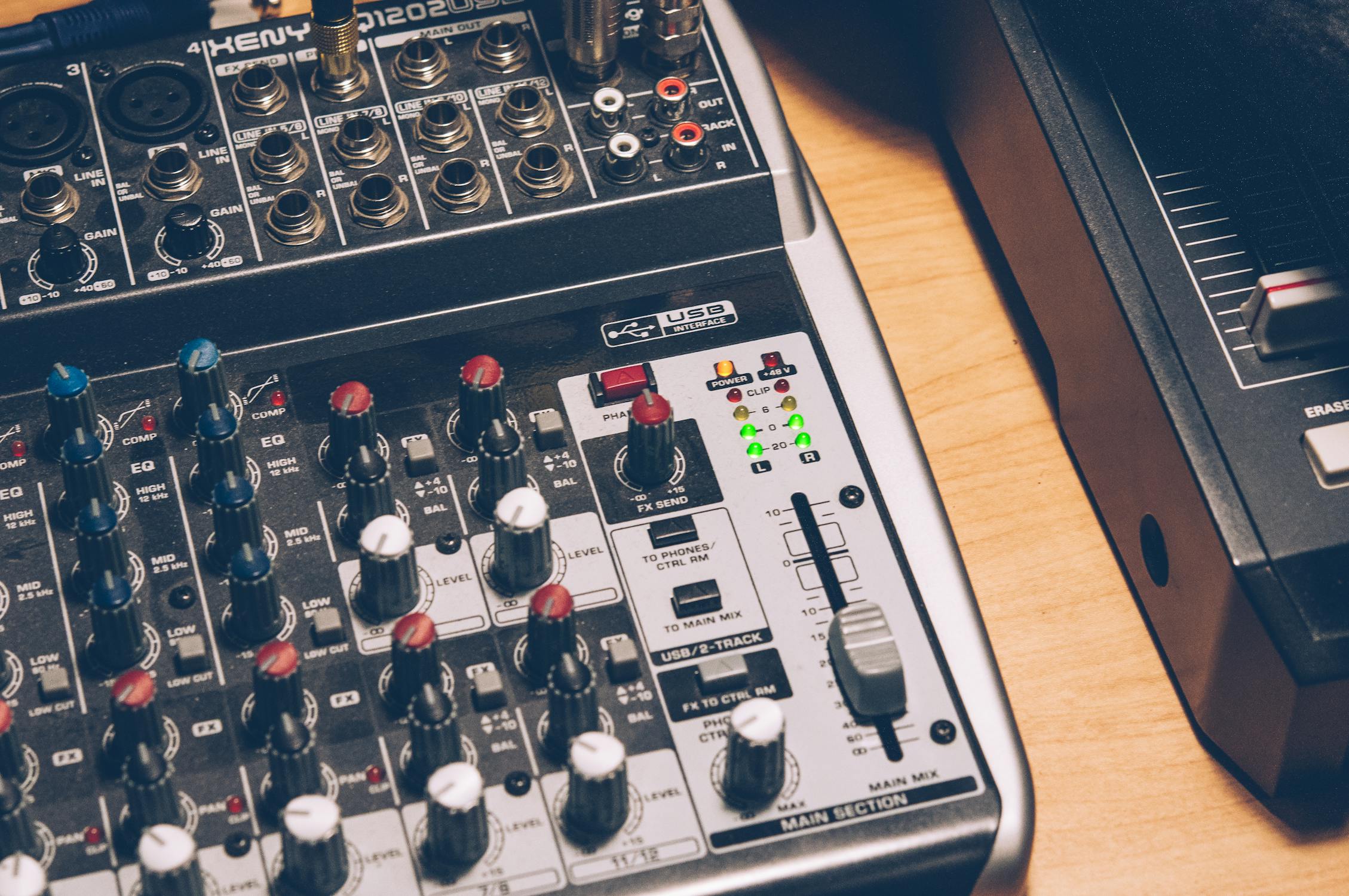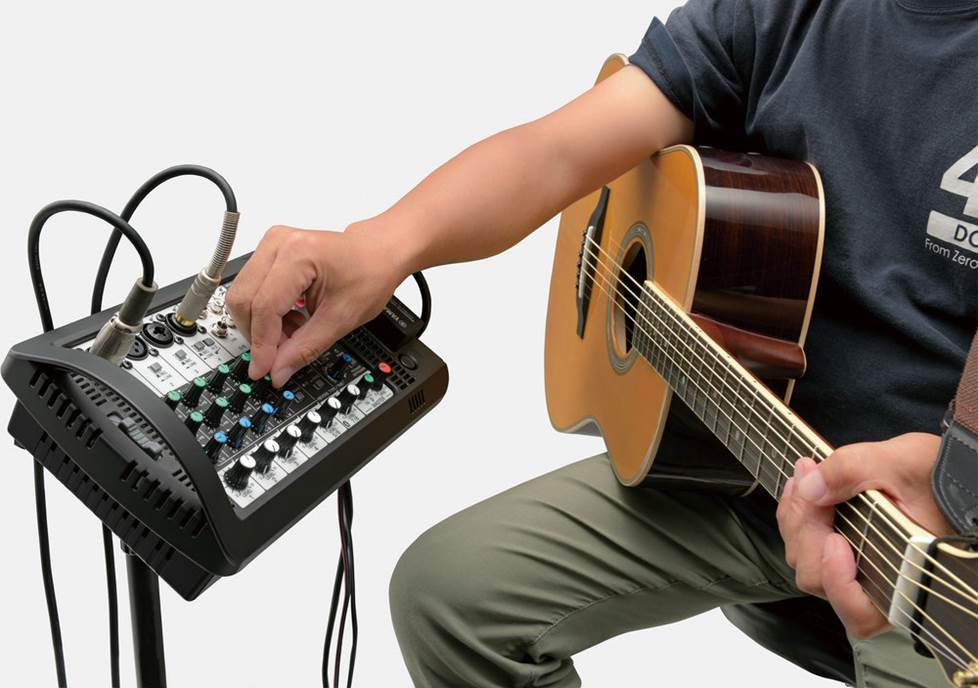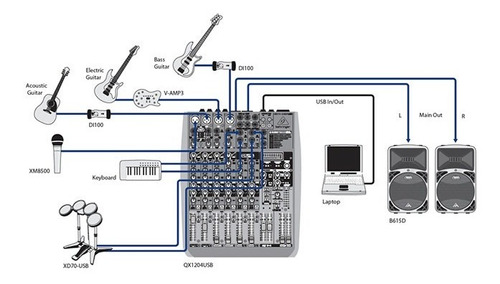Introduction to Compact Audio Mixers
Background
Audio mixers are an essential tool for any musician or sound engineer. They are used to mix and record audio signals including microphones, instruments and other audio sources. It allows the user to adjust levels, tone, and add effects to create a polished sound. Mixers come in various shapes and sizes to fit different applications. However, traditional mixers can be bulky and expensive, making them unsuitable for musicians or sound engineers on the go. This is where ultra-compact audio mixers come in.

Ultra-compact audio mixers are small, portable devices that provide many of the features of larger traditional mixers in a sleek and affordable package. They are ideal for use in small venues, home studios or on the road and are a great option for musicians who need to travel light. Ultra compact mixers also serve as a great starting point for learning about hardware mixing. In this course, we will explore the features and benefits of ultra-compact audio mixers and help you understand where and when it is perfect for ones needs.

The Role of a Mixer
A compact audio mixer is the perfect device to combine and process multiple audio sources without taking up much space. Its purpose is to provide the user with greater control over the audio output, allowing for adjustments to volume levels, tone, and effects. Different mixers offer different ranges of features. Some offering only the bare minimum functionality of purely mixing levels. It takes more than merely knowing how to operate controls in order to expand the flexibilities of a mixer. Any limitations require one to be resourceful with the functions available.


Common Features of Ultra-Compact Audio Mixers
At the minimum, on any mixer you can expect to find at least two input connections to accept audio signals with the ability to adjust the volume of those multiple input sources individually. An additional two connections are for the stereo output of the mixer. There is typically a “Master Volume” knob that controls the final level of all signals before reaching the output connectors of the mixer… but not always!

Standard Processors:
- Gain Stages
- EQ
- Pan
- FX Sends
Standard Connectors:
- Mic
- 1/4 Inch Line
- RCA
Even with limited functionality compared to larger mixers, it’s possible to learn the vast majority of mixing principles with compact mixers. In fact, the larger mixer manufacturers are implementing more features into compact mixer designs in order to suit the growing demand of processing power.
Applications of Compact Audio Mixers
Ultra compact mixers are useful in any scenario where there are microphones, instruments and other audio sources that need to be mixed together to create a cohesive sound in a limited space. They are portable and easy to install for personal, professional and public settings.
Music Studios
Ultra-compact mixers provide basic mixing functions for recording vocals, guitars, or other instruments, without taking up too much desk space. It may not always be the centerpiece however, any studio is likely to have one on hand in order to group a collection of devices.

Electronic beat makers, in particular, may have a vast collection of devices, including synthesizers, drum machines, and effects units, each with their own output. A compact mixer enables the user to blend and control the levels of all these signals to be to become a singular cohesive sound.

Additionally, many compact mixers come equipped with a USB output, allowing for direct recording into a computer or digital audio workstation (DAW). This enables the user to capture the mixed audio signal directly onto their computer, where it can be edited and manipulated further. Opening for even greater control and flexibility over the final sound.

Podcasting & Live Streaming
Ultra-compact mixers are a great option for podcasters who need to mix multiple audio sources, such as guest speakers, music, and sound effects. They can also offer basic equalization and effects options to enhance the audio quality of the podcast. The intuitiveness of a compact mixer makes it easy for the podcaster to control on their own sound. Some say the mixer even enhances their immersion.


Live Performances
Ultra-compact mixers are perfect for live performances, where you need a compact, portable mixer that can handle multiple inputs and outputs. They are easy to transport, set up, and operate, making them ideal for solo artists, duos, or small bands.


Businesses & Small Venues
Ultra-compact mixers are an excellent option for small venues, such as coffee shops, bars, and house shows. Many venues have a dedicated compact mixer hidden on a wall or behind a shelf, out of sight to shopping patrons. Compact mixers are easy and intuitive enough for business owners to operate the mixer with a minimal understanding of sound.

Choosing the Right Ultra-Compact Audio Mixer
When choosing an ultra-compact audio mixer, there are several factors to consider, including:
- Number of Inputs – Consider how many audio sources you need to connect and choose a mixer with enough inputs to accommodate them.
- EQ and Effects – Decide which equalization and effects options are important to you and choose a mixer that offers those features.
- Outputs – Consider what type of output you need and choose a mixer that offers the appropriate connectors.
- Portability – Look for a mixer that is lightweight and easy to carry, with a durable design that can withstand frequent use.

Conclusion
Ultra-compact audio mixers are a great option for musicians and sound engineers who need a portable, affordable, and easy-to-use mixer. They provide a way to mix multiple audio sources into a single output and are used in a range of applications, from live performances and recording sessions to podcasting and broadcasting. When choosing a compact audio mixer, consider the number of input channels, size and portability. Compact audio mixers are an essential tool for anyone working with audio.